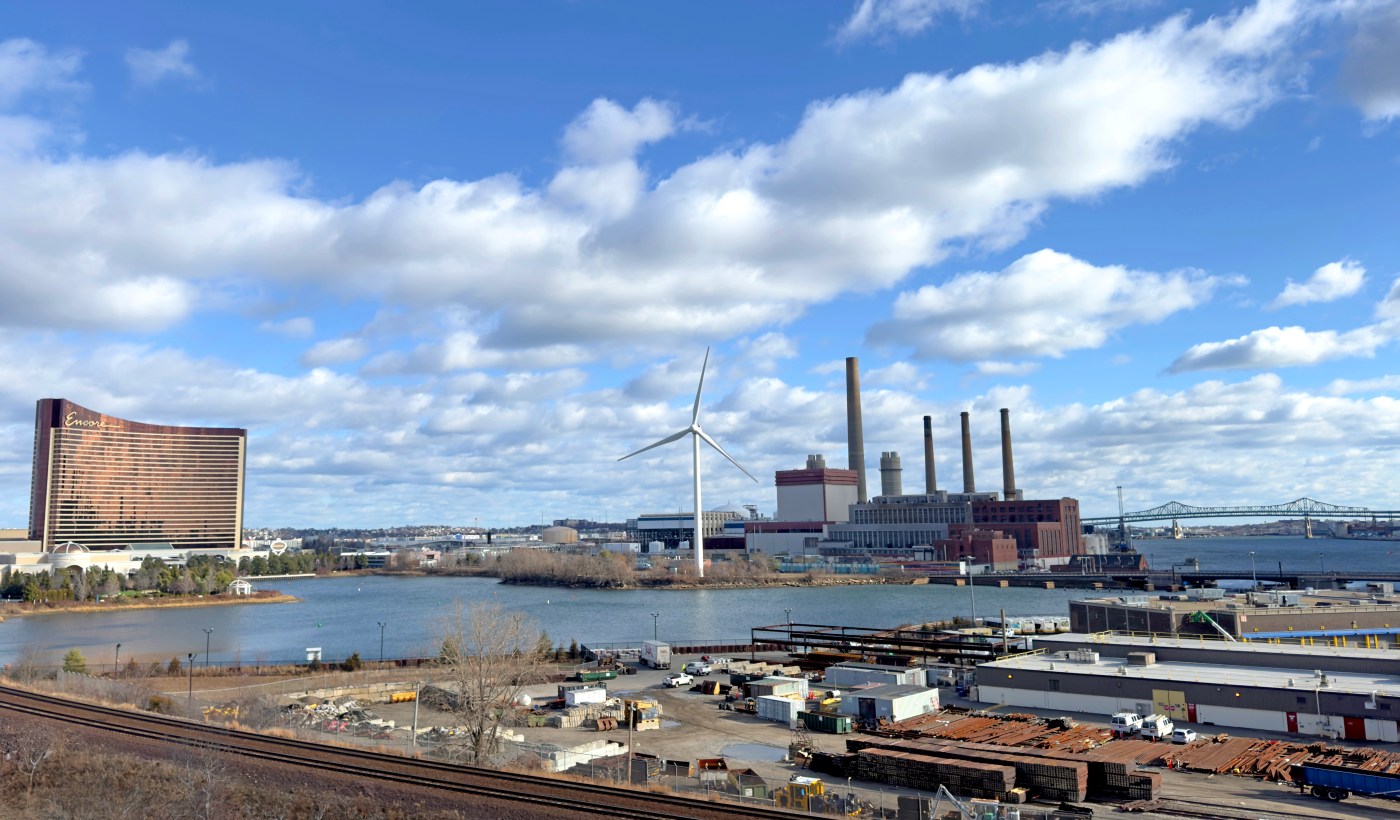
Belsito: Hazard warning for Everett’s lithium battery park
The Healey Administration just approved the permitting of an enormous lithium battery complex in the City of Everett, which would make it among the largest in New England and in a rather populated area compared with past large scale battery projects.
This is concerning because lithium batteries can burn or explode without warning. The resulting toxic inferno from a project this size, and near such a populated location would be catastrophic. Given the new law requiring the electric utilities to buy huge quantities of these batteries, this added threat is unnecessary.
The Texas developer Jupiter Power proposes to place an incredible 700 megawatts (MW) of giant lithium batteries on a 20-acre site that is surrounded by commercial development. This includes an existing casino and hotel plus a proposed soccer stadium, and mixed use development.
This would be one of the biggest lithium battery complexes in America, the biggest being 821 MW located in a remote part of Kern County, California. There are no large battery complexes in urban areas as this one is proposed to be.
The last thing a dense, urban area like Everett needs is the gigantic fire threat which these lithium batteries certainly present. The Everett site would host over 400 tractor trailer-sized batteries, each weighing up to 80,000 pounds and containing a hundred times the amount of chemicals in an electric car battery. That is 16,000 tons of lithium batteries that are capable of unexpected fire or explosion. That this threat exists is well established.
Large scale lithium battery complexes like this are normally built far from communities. They are built on hundreds of remote acres so if one battery burns it does not set its neighbors ablaze and poison thousands of people. If a fire were to break out, the chain reaction could quickly engulf the entire complex, producing enormous amounts of toxic smoke.
The 20-acre Everett site is so small that the batteries would have to be side by side or even stacked one on another. Packed together like that, a single battery burning could set the entire complex on fire. The effects of this on the metro area would be unthinkable.
From Jupiter Power’s website, it looks like their biggest built project to date is just 200 MW and all projects are located in remote areas. Building a colossal 700 MW project within Metropolitan Boston is not a wise one for Jupiter or Massachusetts and certainly not for Boston or Everett.
Moreover, lithium battery fires cannot be extinguished with water. They have to burn themselves out over a period of many hours, so the toxic fumes never stop. While a gasoline fire burns at 1,500 degrees, lithium batteries burn at an incredible 5,000 degrees. This prodigious heat would surely and quickly set neighboring structures on fire as well.
Both the Everett and Boston fire marshals should be deeply concerned about this proposed urban concentration of dangerous lithium batteries. So should the elected officials, neighbors, and the overall site developers.
There really isn’t any conceivable need for this complex. The new climate law already requires the electric power utilities to buy huge quantities of lithium batteries. That is 1,500 MW by this coming July, a whopping 3,500 MW within three years and 5,000 MW by 2030. Presumably these batteries will be sited in safe places. Surely there is no call to put another 700 MW just a few miles from Boston and near a proposed mixed-use housing and commercial development, a stadium, hotel and casino.
There have already been several fires in large scale lithium battery complexes that have had the space to be spread out judiciously. Thankfully none has led to a complex-wide fire. Let’s not make Everett the first catastrophe.
Laurie Belsito is the Policy Director of Massachusetts Fiscal Alliance


